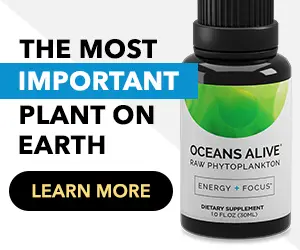
Every year pharmaceutical drugs are being banned after causing horrendous unexpected—sometimes hidden and lied about—side effects. The ban usually takes place after a row of lawsuits are filed against the drug manufacturer.
Unfortunately, for many patients injured, the negative life-changing side effects aren’t discovered until decades too late, and sometimes generations later.
This is what happened with a banned pregnancy drug. The drug that pregnant women took between 1938 and 1971 and is now affecting their grandchildren, demonstrating once again that pharmaceutical drugs come with far greater and more wide-ranging risks than the vast majority of our lawmakers and health institutions are willing to admit.
Pregnancy Drug Banned Because of Cancer Risk Causes ADHD
Diethylstilbestrol (DES) was a synthetic estrogen—female hormone. It was given to as many as 10 million U.S. women over four decades to try to prevent miscarriages and complications during pregnancy. It was banned in 1971 when it was discovered that it was causing virginal cancers in daughters of women who took this drug. Later it was found that DES increased risks of other cancers in daughters—cervix and breast, as well as infertility. In 2001, scientists also found a link between DES and breast cancer in the women themselves who took it.
Today, new research now shows that this toxic pharmaceutical have hurt more than two generations. It also had a negative effect on the grandchildren, reported Reuters.
“An exposure during pregnancy has the potential to impact multiple generations if the fetus is female, because the oocytes (aka egg cells) that will develop into the grandchildren of the pregnant woman grow while their mother is in utero,” said lead study author Marianthi-Anna Kioumourtzoglou.
Grandchildren of women who took DES have a whopping 36% higher chance of having ADHD then other children.
“Use of DES during pregnancy or other endocrine disrupting chemicals could thus directly impact the third generation, leading to neurodevelopmental disorders, such as ADHD,” Kioumourtzoglou said.
For a disease that affects 11% or 6.4 million of American children, this is a high number and may be responsible for a large number of cases. ADHD has seen a 42% increase of cases in just 8 years, and scientists are looking for answers. The new information about DES is eye-opening to the fact that not just the toxicity of today’s world can negatively affect the children. The issues may also stem from generations that came before them.
DES effects in grandchildren also include delayed menstrual period in girls, and hypospadias in boys (a disorder affecting the male reproductive organs).
Danger of Chemicals When It Comes to ADHD
The DES research confirms how dangerous endocrine disruptors are—chemicals that interfere with the body’s hormones. Sadly, thee chemicals are thoughtlessly put into many consumer products, not just drugs. They are found in:
- baby bottles (choose BPA free at the very least, or glass)
- personal care products
- metal cans
- flame retardants
- cosmetics
- pesticides (buy organic whenever possible)
- conventional produce
- laundry detergent (always buy natural and non-toxic, like this one made with essential oils)
- kitchen products
- cleaning products
All of these products have been linked not only to ADHD, but also autism, heart disease, obesity, and diabetes. They are linked to have a negative effect in people directly exposed to it and also passed to other generations.
“The entire class of hormone/endocrine disrupting medicines and chemicals have been known or suspected to interfere with offspring development for many years,” said Joel Nigg, an ADHD expert at Oregon Health & Science University in Portland.
Even though DES is banned, other endocrine disruptors end up in women’s bodies through food, cosmetic products, and pollution.
Nigg recommends always reading labels on cosmetics and cleaning products, and that people stick to buying only organic food to avoid exposure.
If you have a child with ADHD, or know someone who does, check out Niggs’s book “Getting Ahead of ADHD,” where he offers solutions for fighting ADHD with nutrition, exercise, and avoiding the risk factors.
Endocrine Disrupting Ingredients to Avoid
When buying products that often contain endocrine disruptors, be aware of the following dirty dozen to avoid:
- BPA in cans, plastic bottles, and thermal paper.
- Dioxin contaminated meats, fish, eggs and milk products (limit intake).
- Atrazine in water. (Get a thorough water filter).
- Phthalates in food containers and children’s toys.
- Perchlorate in drinking water. Removed through reverse osmosis.
- Fire retardants are virtually everywhere at home. Clean with a HEPA filter vacuum cleaner to reduce toxic dust at home.
- Lead in old paint that needs replacing. Also in water, which can also be removed with a awater filter.
- Arsenic in drinking water.
- Mercury in fish and seafood. Limit your intake.
- Perfluorinated chemicals (PFCs) in non-stick pans and water-resistant products such as clothing.
- Organophosphate pesticides in conventionally grown food. Buy organic.
An in-depth guide on this dirty dozen and how to avoid it is available from the Environmental Working Group (EWG).
Recommended reading about ADHD:
New Study Finds a Strong Link Between ADHD and Water Fluoridation
More on pregnancy:
WARNING: Tylenol May NOT Be Safe After All! Prenatal Use Linked to Increased Autism and ADHD Risk
New Study Finds Link Between Autism and Fever During Pregnancy
“All Pregnant Women, Beware” – Gynecologist Exposes the Truth About America’s #1 Prenatal Vitamin
Thanks for installing the Bottom of every post plugin by Corey Salzano. Contact me if you need custom WordPress plugins or website design.












